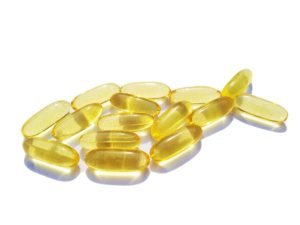A Brief Overview of Dietary Fats
While it is evident that not all fats are created equal, questions arise: Why might olive oil be less healthy than presumed, and why is fish oil of paramount importance? Which oils are safe for frying, and which pose health risks? Join us for a concise introduction to the world of dietary fats.
Animal Fats and Inflammation
In the context of endometriosis, it is crucial to steer clear of foods that can trigger inflammatory processes in the body, exacerbating symptoms. Among these culprits are various animal fats – not just butter, bacon, and lard, but also the fat in dairy products, meat, and processed meats.
Animal fats contain a specific omega-6 fatty acid called arachidonic acid, promoting inflammation. On the other hand, vegetable fats contain minimal amounts of this inflammation-inducing substance and should always be favored in an endometriosis-friendly diet. Opting for a predominantly plant-based diet can be advantageous for those with endometriosis. If you prefer not to eliminate animal products, consider selecting leaner options: cream cheese instead of hard cheese, skim milk in place of whole milk, low-fat quark instead of full-fat cream quark, lean cuts of meat like tartar instead of fatty minced beef, and leaner selections such as fillet steak over pork neck or pancetta when grilling.
Not All Vegetable Fats Are Created Equal
To comprehend why some vegetable fats are unhealthy and why certain omega-3 fatty acids are essential, it is crucial to recognize that various types of fatty acids exist. All dietary fats are made consist of fatty acids, which can be categorized into two fundamental groups:
- Saturated Fatty Acids
- Unsaturated Fatty Acids
Saturated fatty acids are solid at room temperature and are found in animal fats (such as bacon and butter) and in some vegetable fats like palm oil and coconut oil. On the other hand, unsaturated fatty acids are liquid and are predominant in most vegetable oils.
Unsaturated fatty acids are further divided into two categories:
- Monounsaturated Fatty Acids
- Polyunsaturated Fatty Acids
Monounsaturated fatty acids, abundant in oils like olive oil, are considered non-essential since the body can synthesize them independently and do not need to be obtained from the diet. Polyunsaturated fatty acids, conversely, are essential, meaning they must be acquired through dietary sources because the body cannot produce them. Omega-3 and omega-6 fatty acids belong to this group. Emerging research highlights the significance of omega-3 fatty acids. Low levels of these have been linked to conditions such as Alzheimer’s disease, dementia, cancer, depression, schizophrenia, and other mental illnesses [1]. Moreover, a study suggests that insufficient omega-3 fatty acid intake could increase the risk of developing endometriosis by 22% [2].
It is not sufficient to acknowledge that omega-3 fatty acids can be beneficial for managing endometriosis. Understanding the optimal ratio between them is equally crucial. In particular, the balance between omega-3 fatty acids and omega-6 fatty acids plays a pivotal role in fully allowing omega-3 fatty acids to exert their health-promoting effects. This brings us back to the pro-inflammatory omega-6 fatty acid, ‘arachidonic acid,’ mentioned earlier. Omega-3 fatty acids can mitigate the effects of omega-6 fatty acids, which is advantageous for endometriosis. Hence, achieving a harmonious equilibrium between them is essential. The ideal ratio of omega-3 to omega-6 is less than 1:5, meaning that a lower proportion of omega-6 in relation to omega-3 is preferred for optimal health. A glance at the fatty acid composition of some popular cooking oils underscores why certain vegetable fats may not be the healthiest choice:
- Olive oil (Ratio: 1:11)
- Corn oil (Ratio: 1:54)
- Sunflower oil (Ration: 1:122)!
In contrast, other oils fare much better:
- Linseed oil (Ratio: 1:4)
- Rapeseed oil (Ratio: 1:2)
Rapeseed oil emerges as a healthy alternative to less optimal, inexpensive options like sunflower oil, and it can even be advantageous for endometriosis. Given the positive impact of omega-3 fatty acids, they should play a primary role in your future cooking endeavors. Whenever possible, avoid fatty foods of industrial origin, such as pastries or ready-made meals, as they may contain trans fatty acids that can be detrimental to your health.
Not Every Oil is Suitable for Cooking
Now that you understand the health benefits of rapeseed oil, often regarded as a versatile choice, it is essential to exercise caution when using it for frying and other high-heat cooking methods where the oil reaches temperatures above 160°C.
Cold-pressed virgin oils, including the highly praised olive oil, should never be employed for frying, grilling, or baking due to their notably low smoke points. When heated, oils rich in unsaturated fatty acids can potentially yield carcinogenic compounds. This process may even result in the formation of harmful trans fatty acids (for more on these fatty acids and their impact on endometriosis, see here) right in your kitchen. As a general rule, if you observe smoke emanating during frying, it indicates either the use of the wrong oil or overheating of the right oil, thereby allowing the development of harmful substances.
So, if your cooking calls for frying, deep-frying, grilling, or baking with oil, opt for refined oils, specially labeled frying oils, or ‘high oleic’ oils derived from specially cultivated rapeseed or thistle seeds. These oils boast high oleic acid levels and withstand high temperatures without further refinement. Ensure you have an oil in your kitchen that lacks terms like ‘virgin’ or ‘cold-pressed’ on the packaging. Refined rapeseed oil, for instance, is readily available in most supermarkets.
Fish Oil: An Animal-Based but Essential Addition
While a predominantly plant-based diet is beneficial for managing endometriosis, a noteworthy exception exists. Like the recommended rapeseed oil, plant-based oils exclusively contain the omega-3 fatty acid α-linolenic acid. However, for a comprehensive health-promoting effect, the two other crucial omega-3 fatty acids, DHA and EPA, also play pivotal roles. Therefore, incorporating fish into your diet regularly becomes essential. In cases where a vegan diet or an aversion to fish precludes their consumption, a suitable alternative is to include red algae, such as kelp, in your diet. If both options are unviable, fish oil capsules or capsules containing red algae extract are advisable.
Opt for Vegetable Oils, but Choose Wisely!
An utterly fat-free diet is neither recommended nor practical, as even grains contain natural oils, albeit in small amounts. However, it is crucial to make conscious choices regarding fat consumption. Aim to predominantly include healthy vegetable oils like rapeseed oil and linseed oil, among others, in your diet. Supplement your nutrition with sea fish or red algae for their omega-3 fatty acids. When it comes to cooking methods such as baking, frying, and grilling, opt for a specially designated high-heat oil to ensure optimal results.
References
- Rehab for endometriosis – Interview with rehab psychologist Teresa Götz - 15. March 2024
- Interview with Silke Neumann about Superfoods - 19. November 2023
- Interview with Silke Neumann about Healthy Sugar Alternatives - 18. November 2023





